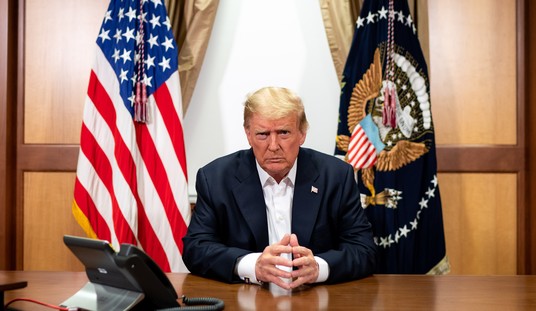WASHINGTON – With the federal government facing an economic upheaval over looming budget cuts, Congress returned to the nation’s capital from far and wide after a week off on Monday – some having ventured farther and wider than others.
Instead of sticking around town to devise a sequestration package intended to cut spending by about $1 trillion over the next nine years, about two dozen lawmakers used the recess to travel overseas. Included in the itineraries were a visit with veterans’ organizations in Guam and an attempt to arrange the release of a political prisoner in Havana.
Sequestration, slated to take effect on March 1, is expected to reduce economic growth by 0.7 percent this year, according to the Congressional Budget Office. The Bipartisan Policy Center, meanwhile, predicts it will lead to the loss of one million jobs nationwide. Thus far, lawmakers and the White House haven’t taken a serious stab at tackling the issue.
Sen. Marco Rubio (R-Fla.), who offered the GOP response to President Obama’s State of the Union address on Feb. 12 and is considered a possible presidential candidate himself in 2016, used the break to travel to Jordan, Israel, and the West Bank.
Rubio is a member of both the Senate Foreign Relations Committee and the Select Committee on Intelligence, whose members usually rank among the most traveled. Several candidates with their eyes on the White House have made the same pilgrimage to Jerusalem.
“This has been an invaluable trip for me to gain important insights and firsthand accounts about the pressing security and economic issues facing this region, from the very people responsible for protecting their people and achieving lasting peace,” Rubio said about the excursion. “I look forward to returning home to continue working to improve America’s foreign policy in the Middle East, and especially towards further solidifying the unbreakable bond between the U.S. and Israel.”
Foreign trips, known as congressional delegations or CODELs for short, are a standard operating procedure for many members of Congress. Planned months in advance, taking advantage of breaks in the legislative calendar, they rarely anticipate potential complications that might otherwise keep them close to home, visiting constituents, or simply taking care of business.
According to Legistorm, a congressional information and research service, lawmakers took 1,388 congressional trips in 2012, costing taxpayers $3.7 million. The top foreign destination was Israel, which hosted 75 CODELs, followed by Turkey with 73.
But that covers only a percentage of congressional travel. Lawmakers are permitted to accept trips funded by private sources as long as the arrangement is pre-approved by the House or Senate ethics committees. That consent can be obtained if the trip conforms to congressional rules and is connected in some manner to the individual’s official duties.
Private organizations that employ registered lobbyists are prohibited from sponsoring trips that exceed two days and a member of Congress cannot be accompanied by any of the organizations’ lobbyists.
According to House rules, “Travel will not be approved if it does not include sufficient officially-connected activities, or if it includes excessive amounts of unscheduled time for opportunities for recreational activities during the official itinerary, even if such activities are engaged in at personal expense.”
Legistorm further reports that members of Congress and their staffs have taken 35,347 privately financed trips costing $80.2 million since the beginning of 2000. In 2012, the American Israel Education Foundation, the charitable organization affiliated with AIPAC, a pro-Israel lobby, topped the travel list, sponsoring 65 congressional trips at a cost of $675,860.
Some of those trips have created a stir. In 2011, for instance, during an AIPAC-sponsored trip that featured a visit to Israel’s holiest sites and foreign policy discussions with the nation’s highest officials, Rep. Kevin Yoder (R-Kansas) was witnessed skinny dipping in the Sea of Galilee. At other times, before stricter rules were enacted, some lawmakers, including House Speaker John Boehner (R-Ohio), took sponsor-paid trips that amounted to little more than golf outings.
This year, one lawmaker taking advantage of the break was Sen. Robert Menendez (D-N.J.), the new chairman of the Senate Foreign Relations Committee, who made stops in Afghanistan and Pakistan as part of his official duties. The visits accomplished one thing for Menendez — it got him away from prying reporters asking questions about a recent private trip to the Dominican Republic that some reports suggest involved prostitutes, a claim the lawmaker denies.
Discussing his trip, Menendez said he was “encouraged by the expressed commitment to addressing the terror threat that afflicts both our nations and destabilizes the region, as well as support for the peace and reconciliation process in Afghanistan. Progress on these key issues will enable us to re-focus our bilateral relationship on deepening our political and economic ties which will benefit both our nations.”
In Afghanistan, Menendez met with President Hamid Karzai.
“The meeting provided an important opportunity to discuss the changing United States’ mission in Afghanistan,” Menendez said. “This mission is critical, not only for the stability of Afghanistan but also to protect enduring U.S. interests in the region.”
One CODEL over the break was a five-member expedition led by Rep. Jeff Miller (R-Fla.), chairman of the House Veterans’ Affairs Committee, which included stops in San Diego and Hawaii before heading to Guam where they toured an outpatient veterans’ clinic and Naval hospital and met with various veterans organizations to discuss the fiscal ramifications of the sequestration. The group subsequently moved on to the Philippines.
Rep. Madeleine Bordallo (D-Guam), the territory’s delegate in Congress, said the purpose of the trip was to “assess the clinical operations, programs, and collaborative activities of the Department of Veterans’ Affairs and Department of Defense medical facilities.”
“The delegation had the opportunity to meet with local government leaders and our veteran service organizations to learn of the needs and concerns of our community,”’ she said. “Their visit also highlights the importance of improving critical services and benefits for our veterans. This was a fruitful visit and I am confident that our local veterans will continue to see improved services now that the chairman and members of the House Committee on Veterans’ Affairs had the opportunity to visit our island and people.”
Closer to home, Sen. Pat Leahy (D-Vt.), chairman of the Senate Judiciary Committee, led a CODEL to Cuba with the hope of gaining the freedom of Alan Gross, an American who was jailed more than three years ago for distributing communication technology.
The delegation, which included Sen. Jeff Flake (R-Ariz.), carried the support of the State Department. The remaining members of the delegation were Democrats — Sen. Debbie Stabenow of Michigan, Sen. Sheldon Whitehouse of Rhode Island, Sen. Sherrod Brown of Ohio, Rep. Chris Van Hollen of Maryland , and Rep. Jim McGovern of Massachusetts.
The mission met with Cuban President Raul Castro but failed to obtain Gross’s release.
“We discussed a wide range of issues and I assured (Gross) we were doing everything possible to secure his immediate release,” Van Hollen said. “I indicated to President Raul Castro that the release of Mr. Gross is essential if we are to going to improve the relationship between the United States and Cuba – something I believe is in the interest of both of our countries.”
After that stop the delegation proceeded to Haiti to get a post-earthquake view of the island nation.
And there was no reason for Rubio to feel all alone in Israel. Members of the Commission on Security and Cooperation in Europe, a federal government agency that monitors the 1975 Helsinki accords and works toward developing a cooperative global atmosphere in 56 countries, visited Israel, Turkey, and Austria on a seven-day trip for a firsthand assessment of developments in the region.
In Jerusalem on Feb. 17 the entourage met with President Shimon Peres, following that up on Feb. 18 with Turkish President Abdullah Gül in Ankara.
The delegation was led by Sen. Ben Cardin (D-Md.), the commission’s co-chairman. The panel numbers 21, including nine from the House and nine from the Senate.









Join the conversation as a VIP Member